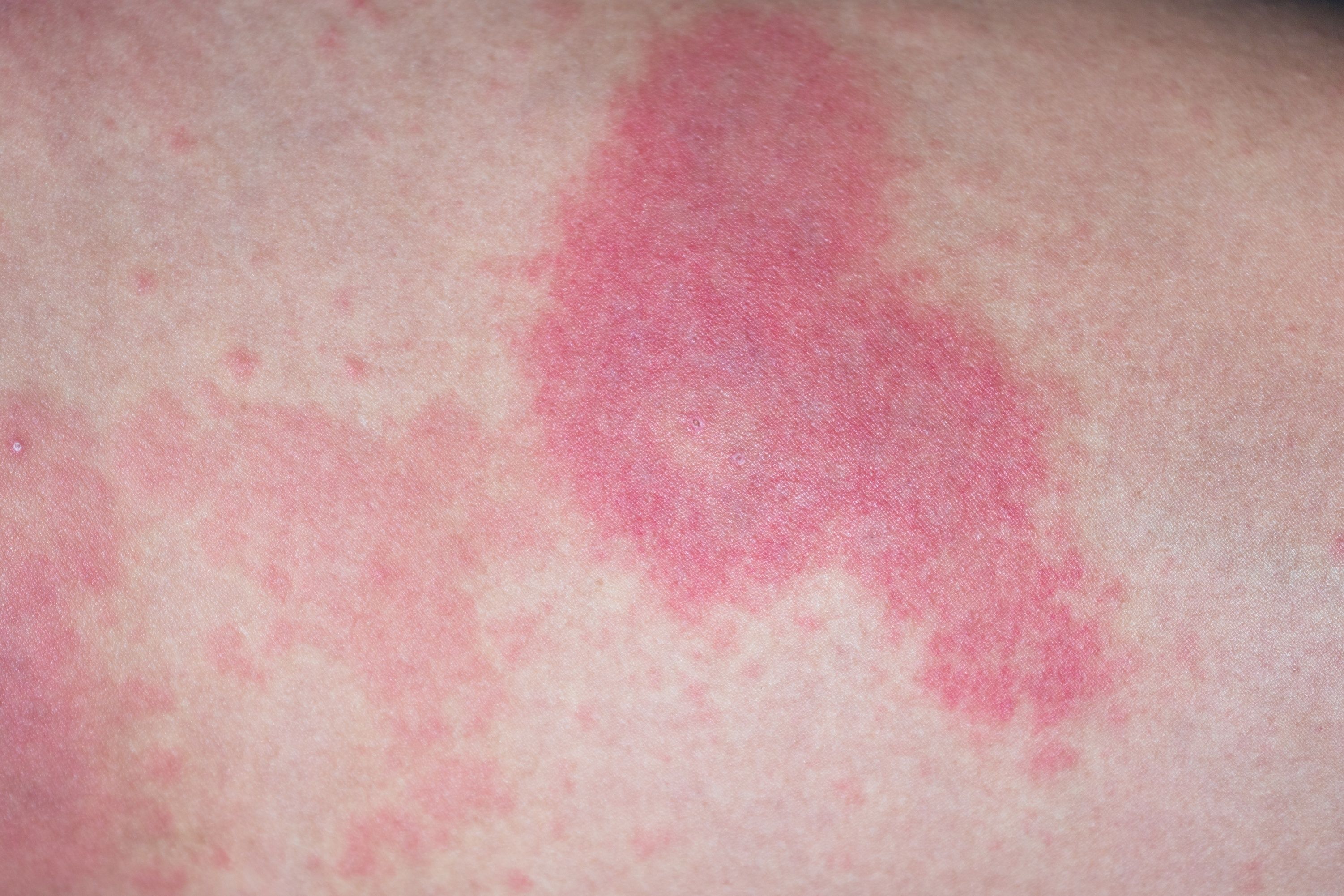- Case-Based Roundtable
- General Dermatology
- Eczema
- Chronic Hand Eczema
- Alopecia
- Aesthetics
- Vitiligo
- COVID-19
- Actinic Keratosis
- Precision Medicine and Biologics
- Rare Disease
- Wound Care
- Rosacea
- Psoriasis
- Psoriatic Arthritis
- Atopic Dermatitis
- Melasma
- NP and PA
- Skin Cancer
- Hidradenitis Suppurativa
- Drug Watch
- Pigmentary Disorders
- Acne
- Pediatric Dermatology
- Practice Management
- Prurigo Nodularis
- Buy-and-Bill
News
Article
Dermatology Times
Dupilumab Efficacious in Urticaria Symptom, Quality of Life Improvement
Author(s):
Over 24 weeks, dupilumab demonstrated efficacy in patients with chronic spontaneous urticaria.
Dupilumab demonstrated statistically significant efficacy in patients with chronic spontaneous urticaria (CSU) over a 24-week study period, according to a poster1 presented at the 2023 Society of Dermatology Physician Assistants (SDPA) Annual Summer Dermatology Conference in Boston, Massachusetts.
Stéphane Bidouze/AdobeStock

Researchers sought to analyze the drug’s effects on overall disease burden, citing the associations between CSU and its impacts on daily activities, emotional wellbeing, performance in school or work, and overall quality of life (QOL). Disruptions, such as itch, contribute to a reduced QOL and an increased impact on daily life.
The phase 3 study (LIBERTY-CSU CUPID Study A; NCT04180488), which was placebo-controlled and randomized, involved participation from pediatric, adolescent, and adult patients with CSU. Patients were required to be at least 6 years of age or older. Further inclusion criteria included prior use of H1-antihistamines, in addition to persistent symptoms regardless of antihistamine use.
Patients received up to 4 times the approved dose of H1-antihistamine. Upon inclusion in the study, they were randomized to 1 of 3 treatment groups:
- 200 mg dupilumab
- 300 mg dupilumab
- Placebo
Patients weighing equal to or greater than 60 kg were assigned to the 300 mg dupilumab dose, while adolescents greater than 60 kg and children equal to or greater than 30 kg were assigned to the 200 mg dupilumab dose. In total, 70 patients received a specified dose of dupilumab, while 68 patients received a placebo.
Treatments were administered subcutaneously on a biweekly basis.
In order to determine the efficacy of treatment, researchers utilized the Urticaria Activity Score (UAS) and Chronic Urticaria Quality of Life Questionnaire (CU-Q2oL). For dupilumab to be considered effective, researchers looked at the UAS score over a 7-day period (UAS7).
At the study baseline, the average UAS7 score for patients assigned to the dupilumab group was 31.9, while patients assigned to the placebo group had an average UAS7 score of 30.8. Also at baseline, dupilumab-assigned patients had an average CU-Q2oL score of 41.0, while their placebo-assigned counterparts had an average score of 46.7.
By week 24, both scores had decreased more significantly among the dupilumab-treated patients when compared to patients receiving the placebo. The average change in CU-Q2oL score from baseline to week 24 was –29.6 in patients receiving dupilumab and –21.0 in patients receiving the placebo—an 8.6-point difference.
Furthermore, average UAS7 scores decreased significantly in patients treated with dupilumab by week 24, with an average change from baseline equating to –20.5. Meanwhile, patients receiving the placebo had an average change from baseline equal to –12.0, or a –8.5-point difference.
“Patients with CSU treated with dupilumab experienced reduction in urticaria activity, as measured by UAS7, and improvement in quality of life, measured by CU-Q2oL,” wrote Mauer et al.
Reference
- Maurer M, Casale TB, Saini SS, Ben-Shoshan M, et al. Dupilumab improves urticaria signs and symptoms and quality of life in patients with chronic spontaneous urticaria (CSU). Poster presented at the 2023 Society of Dermatology Physician Assistants (SPDA) Annual Summer Dermatology Conference; June 22-25, 2023; Boston, MA.







